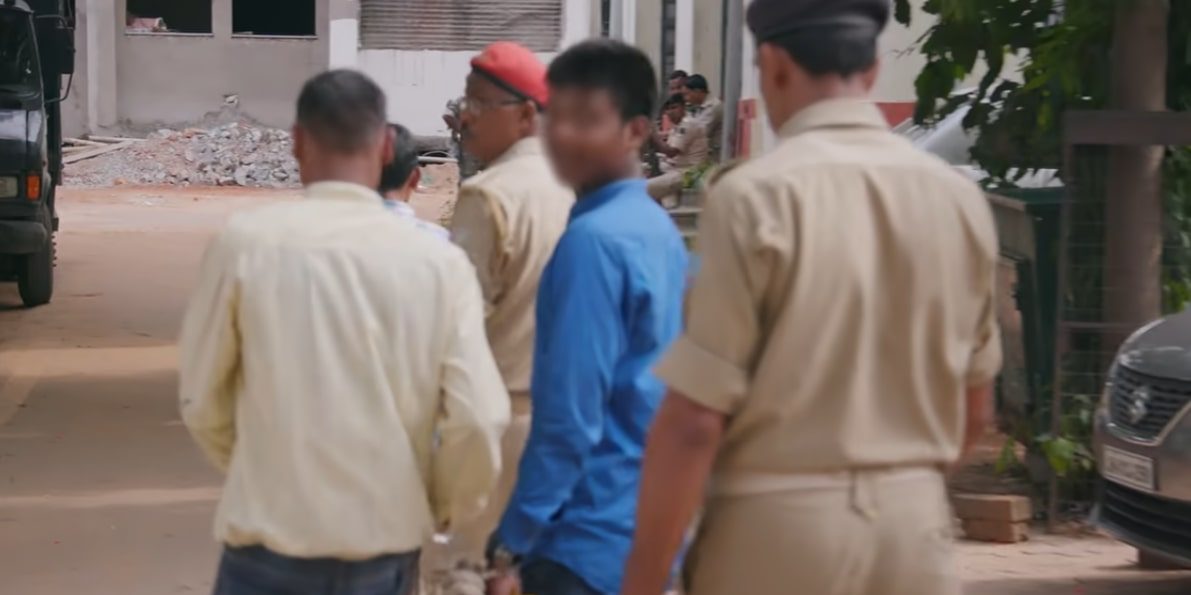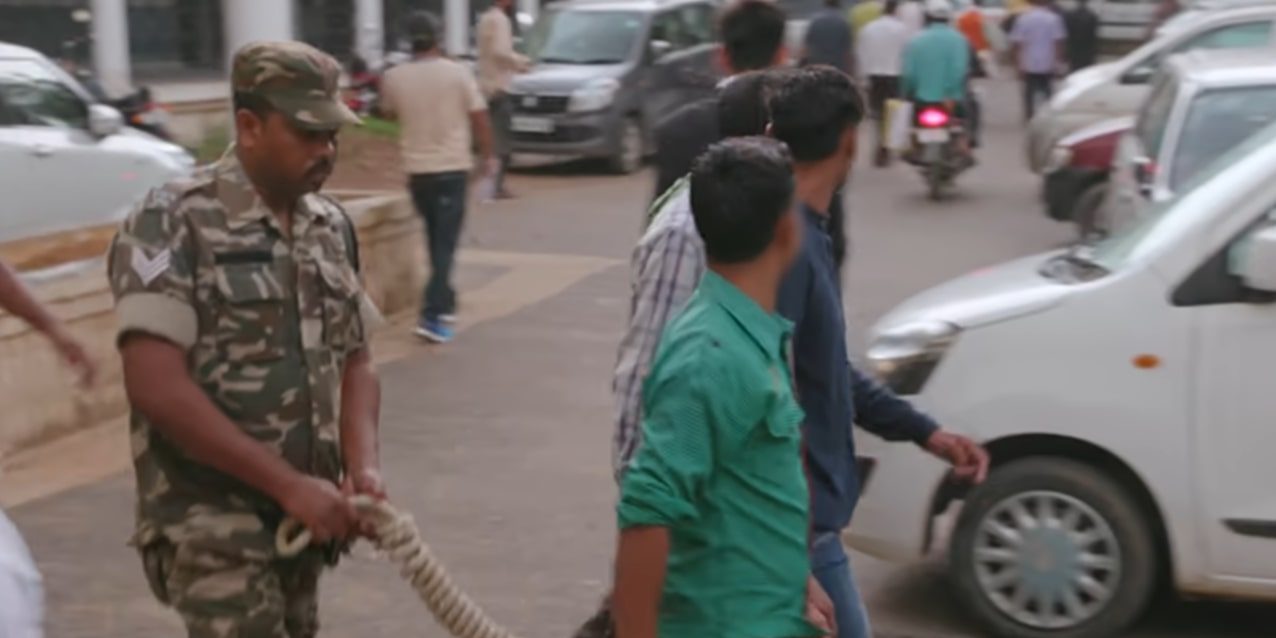Helmed by Nisha Pahuja, Netflix’s ‘To Kill a Tiger’ is a deeply moving Oscar-nominated documentary chronicling the legal, social, financial, and psychological challenges endured by 13-year-old Kiran and her father, Ranjit, in the aftermath of her sexual assault in 2017. Throughout the ensuing months of trial, the duo faced pressure to withdraw their case, received death threats, and encountered various adversarial tactics. Undeterred, Kiran demonstrated unwavering courage, persisting in her pursuit of justice by exposing her assailants — Kapil, Mundu, and Ishwar — despite formidable obstacles.
Kapil, Langru, and Ishwar were Accused of Child Sexual Assault
On May 9, 2017, in the Bero district of Jharkhand, India, Ranjit’s nephew was celebrating his wedding, a significant family event. Ranjit sent his children, including Kiran, to partake in and relish the occasion. At the event, Kiran was actively engaging in singing and dancing just like other kids her age. However, soon, the 13-year-old found herself alone with three boys — Kapil, Mundu, and Ishwar, one of whom was the groom. In the documentary, Kiran revealed that it was Ishwar who seized her by the hair and forcefully dragged her to an isolated area.

Kiran shared that when she started to make noise, Ishwar put his hand over her mouth, and Kapil and Mundu joined him. She added that that’s when two of them held her hands and body, and Ishwar sexually assaulted her, followed by the other two. They left her there and it was after 1 in the night when she was able to find her way back home. Kiran sustained several injuries and fainted on her way home. She told her family what had happened and expressed her desire to get legal justice for herself. The three of them were soon arrested, and their trial began.
Following the incident, typical of village customs, the district chief or “mukhiya” and other village leaders attempted to mediate. As per reports, they proposed a resolution wherein one of the accused would marry Kiran, advocating for an internal resolution. Undeterred, Kiran steadfastly rejected this proposal. Subsequently, it was reported that in the ensuing months, the families of the three accused, along with others, persistently pressured Kiran and her father to withdraw the case. Ranjit alleged that Ishwar’s father had accosted him, threatening to burn down his house if the case was not taken back.
Shockingly, certain villagers defended Kapil, Ishwar, and Mundu, suggesting to Ranjit that Kiran might have provoked the accused, justifying the assault. Others argued that although the incident occurred, the boys hailed from the same village and should be shielded from legal consequences. In a disturbing incident captured by the documentary crew during a court session, one of the accused was observed threatening both Ranjit and the crew members, expressing displeasure at being filmed during the trial.
Kapil, Ishwar, and Mundu are in Prison Till Today
Kapil, Ishwar, and Mundu spent 14 months in police custody throughout the trial, often being brought to court with their hands bound. The case was tried under the Protection of Children from Sexual Offences Act, commonly known as POCSO. It is a legal framework enacted in India in 2012 to address and combat sexual offenses against children. The act defines various forms of sexual abuse, provides guidelines for the legal process, and aims to ensure the speedy and effective delivery of justice for child victims.
By applying POSCO in this case, the legal proceedings were tailored to specifically address the nature of the assault on Kiran, acknowledging the vulnerability of children in such situations. Three witnesses, along with Kiran herself, provided testimony during the trial. Her powerful and detailed account of her experience had a significant impact on the trial’s outcome.
In 2018, the district court declared Kapil, Ishwar, and Mundu guilty of sexually assaulting Kiran, who was underage. The judge delivered a landmark judgment, emphasizing the alarming frequency of assaults on women in India — reportedly occurring every 20 minutes — and asserting that stringent punishments are essential for fostering systemic change. Each assailant received a 25-year prison sentence. Although they appealed the verdict in the Jharkhand High Court, no verdict has been made yet, and Kapil, Ishwar, and Mundu currently remain incarcerated.


You must be logged in to post a comment.